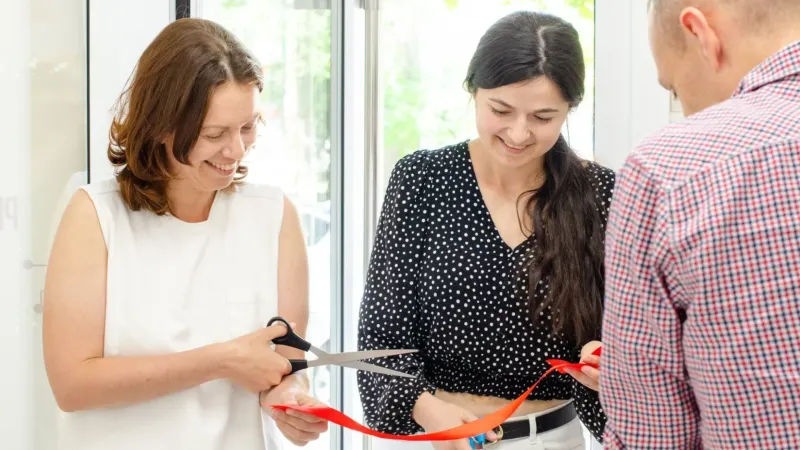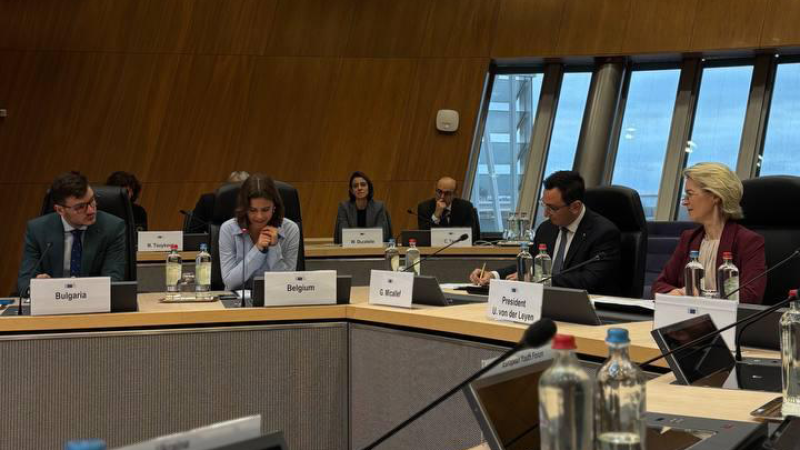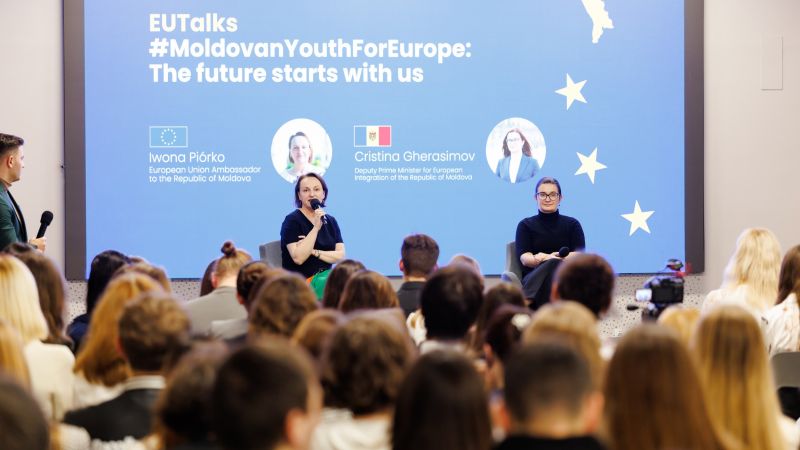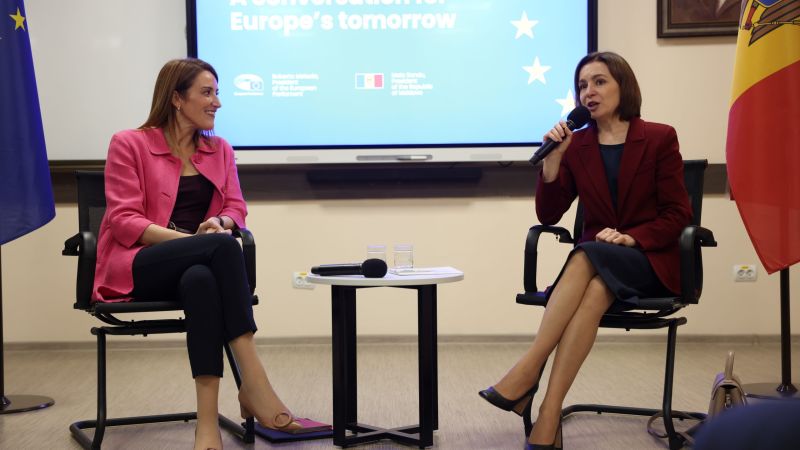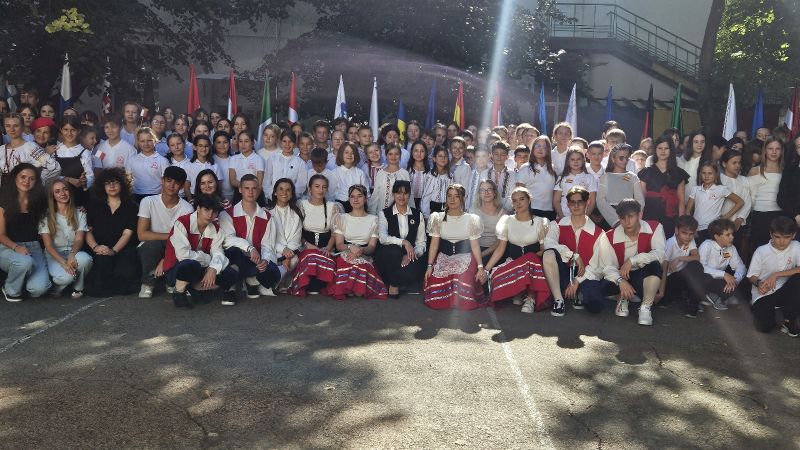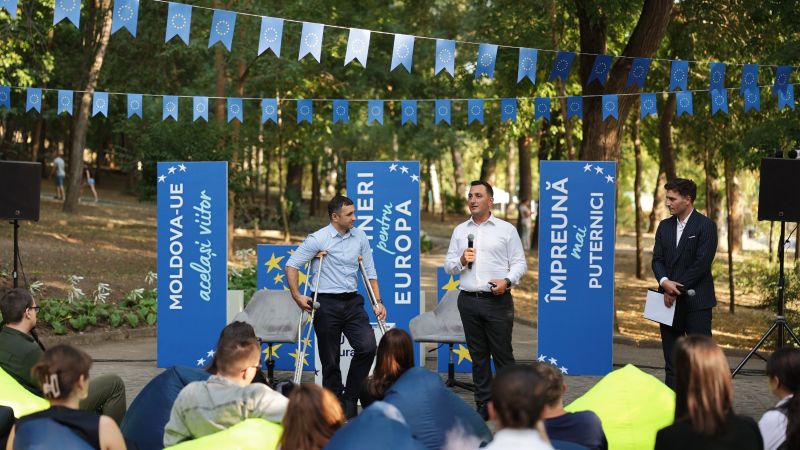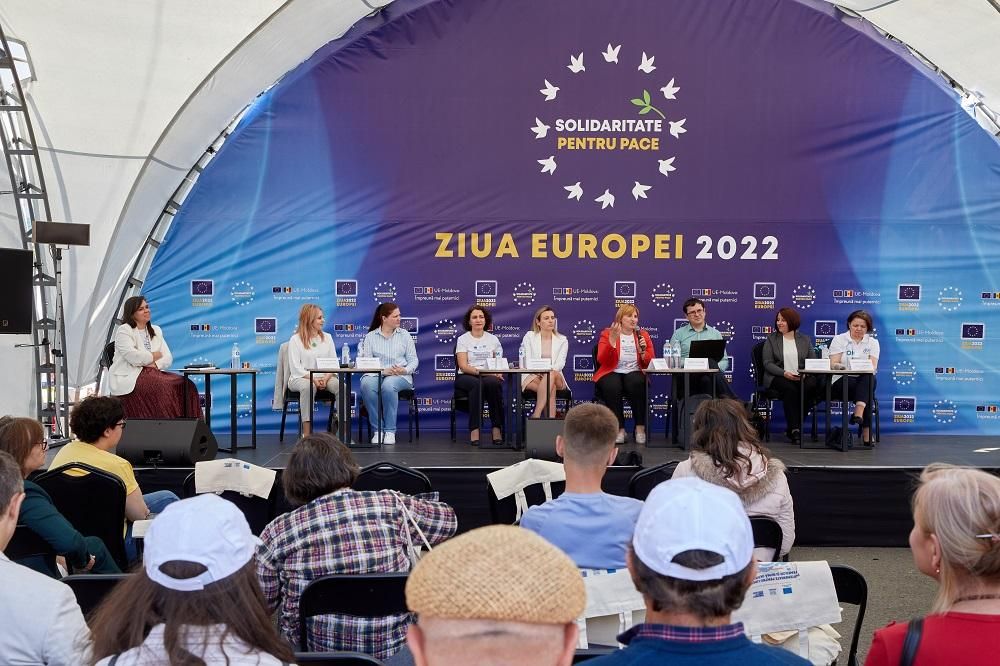
Dialogul bazat pe încredere – cheia succesului pentru un parteneriat durabil dintre autorități și OSC-uri
Datele cu care operează reprezentanții societății civile arată că dinamica dezvoltării serviciilor sociale, în ultimii 8 ani, a fost una pozitivă, în pofida faptului că sistemul actual de servicii sociale încă nu răspunde pe deplin realităților din țară, iar rețeaua serviciilor existente nu este bine cunoscută nici de potențialii beneficiari și nici de autoritățile publice. Acest lucru face ca modelele pozitive, inclusiv cele de finanțare din bugetul public, să nu fie multiplicate și să rămână necunoscute, susțin managerii Organizațiilor Societății Civile (OSC).
Cum pot fi întărite parteneriatele dintre autorități și organizațiile societății civile? La această întrebare au încercat să răspundă participanții dezbaterii „Parteneriate pentru dezvoltarea serviciilor sociale”, organizată de Fundația „Friedrich Ebert” Moldova și AO „Institutum Virtutes Civilis”, în cadrul campaniei dedicată Zilei Europei, ce se desfășoară în perioada 9-31 mai.
Directoarea Fundației „Friedrich Ebert” Moldova, Ana Mihailov, a atras atenția că în ultimii ani se încearcă dezvoltarea unei societăți ce să ofere bunăstare cetățenilor săi, în care fiecare să se bucure de respect, oportunități și șanse egale. „Ne-am propus să discutăm despre cum putem construi parteneriate pentru servicii sociale, pornind de la premisa că statul nu este în măsură, de unul singur, mai ales pe fundalul multiplelor crize și provocări cu care ne confruntăm actualmente, să asigure servicii sociale de calitate, în mod continuu, și care să se extindă asupra tuturor celor care au nevoie de ele”, a atras atenția Ana Mihailov.

Uniunea Europeană se numără printre partenerii cei mai fideli ai autorităților moldovene, care a oferit constant suport pentru dezvoltarea serviciilor sociale. Managera de proiecte în cadrul Delegației Uniunii Europene în Republica Moldova, Victoria Neaga, a observat că noul context din regiune, influențat de războiul din Ucraina, dar și de numărul mare de refugiați, demonstrează că parteneriatele pentru dezvoltarea serviciilor sociale sunt vitale.
„Domeniul dezvoltării serviciilor sociale reprezintă o prioritate pentru Delegația Uniunii Europene. În 2018 am sprijinit un prim proiect foarte mare, cu un buget total de două milioane de euro, în urma căruia au rezultat 42 de servicii sociale la nivel local, pe tot teritoriul Republicii Moldova. Vorbim aici de centre de zi pentru copii, centre pentru bătrâni, echipe mobile care acordă servicii sociale la domiciliu pentru persoanele care nu se pot deplasa, sau acordarea asistenței psihologice victimelor violenței domestice. În 2020, odată cu declanșarea pandemiei de COVID-19, domeniul serviciilor sociale a devenit și mai important. Criza energetică și războiul din Ucraina, din păcate, au complicat situația, respectiv, finanțarea UE în acest domeniu a început doar să crească pentru a răspunde prompt și eficient necesităților persoanelor vulnerabile”, a dat asigurări managera de proiecte în cadrul Delegației Uniunii Europene în Republica Moldova, Victoria Neaga.
Prezent la dezbatere, ministrul Muncii și Protecției Sociale, Marcel Spatari, a menționat că autoritățile au început lucrul la o bază de date a serviciilor sociale. „Din păcate, ne-am dat seama că nu avem un sistem informațional pentru serviciile sociale oferite în țară. Deci, cantinele noastre sociale, de exemplu, nu au un sistem informațional prin care să-și gestioneze beneficiarii, să facă o planificare etc. Pentru a avea o viziune și pentru a putea coordona mai bine lucrurile, avem nevoie de un sistem informațional bine pus la punct. De asemenea, avem o problemă legată de finanțarea serviciilor sociale. Astăzi sunt foarte multe proiecte, cu donatori internaționali, care sunt gata să ne ajute, dar care oferă sprijin o perioadă limitată de timp, după care trebuie să le preluăm noi, autoritățile, și să le finanțăm. Dacă nu știm despre existența acestor servicii, nu avem cum să planificăm bugete pentru sprijinirea lor și așa ne pomenim că avem aziluri pentru bătrâni care sunt închise pentru că nu mai au finanțare. De partea cealaltă, autoritățile locale nu le oferă finanțe pentru că, pur și simplu, nu au planificate resurse în buget”, a comentat ministrul Marcel Spatari.

Pe parcursul anilor, partenerii de dezvoltare ai Republicii Moldova au oferit suport pentru dezvoltarea serviciilor sociale, dar există o necesitate stringentă de a avea o viziune strategică per țară în ceea ce privește serviciile sociale. Opinia a fost formulată de Mariana Ianachevici, Directoarea Asociației pentru Abilitarea Copilului și Familiei „AVE COPIII”, care a oferit mai multe detalii despre provocările din calea parteneriatelor durabile dintre autorități și OSC. „Îmi pare rău să spun asta, dar mai sunt sate sau orașe în care autoritatea publică locală nu poate să explice clar câți oameni au nevoie de cantină socială: cinci sau 50, câți copiii au nevoie să meargă la un centru de zi: zece sau toți copiii din comunitate? (…) Din păcate, de-a lungul anilor nu am învățat oamenii ce înseamnă cetățenie activă, nu am învățat ce înseamnă participare și implicare în actul guvernării. Noi spunem: da, vrem să dezvoltăm servicii, dar am întrebat cetățeanul, cum vede el dezvoltarea acestora, ce așteptări are? Cetățeanul trebuie să fie informat despre ce poate să ofere autoritatea publică locală”, a punctat Mariana Ianachevici.
Ce ar putea întări parteneriatul dintre autoritățile publice locale și organizațiile societății civile? „Dialogul bazat pe încredere”, e de părere Directoarea Departamentului Sănătate Publică în cadrul Fundației Soros Moldova, Lilia Gherman. „Cheia succesului ar fi comunicarea sinceră și dorința de a schimba în bine lucrurile din țară. De asemenea, trebuie să înțelegem că fiecare din comunitate poate pune umărul la schimbare, astfel încât vocea să-i fie auzită, iar lucrurile să oglindească cât mai bine acele nevoi pe care le au oamenii din comunitate”, e de părere Lilia Gherman.
Continuând gândul, manageră Programe Keystone Moldova, Marcela Dilion, a observat că societatea din Republica Moldova ar avea doar de câștigat dacă ar fi una inclusivă, în care orice cetățean, indiferent de provocarea cu care se confruntă, s-ar simți confortabil aici, iar Directoarea Asociației Obștești „CASMED”, Natalia Postolachi, a atras atenția că la baza unui parteneriat durabil între autorități și OSC-uri stă transparența. Organizația pe care o conduce are semnate parteneriate cu peste 60 de localități din țară pentru a oferi asistență la domiciliu persoanelor în etate și nu numai. Natalia Postolachi a precizat că pentru a schimba lucrurile în bine e nevoie de implicare atât din partea autorităților, cât și din partea cetățenilor. „În caz contrar, vom bate pasul pe loc”, a punctat directoarea Asociației Obștești „CASMED”.
În încheierea dezbaterii „Parteneriate pentru dezvoltarea serviciilor sociale”, președinta AO „Institutum Virtutes Civilis”, Liliana Palihovici, a conchis că organizațiile prestatoare de servicii sociale au nevoie de sprijin mai ales în raioanele cu venituri modeste. „Resursele pe care le au astăzi autoritățile publice locale pentru susținerea OSC-urilor sunt mult prea mici ca sa facă față necesităților beneficiarilor. Pentru a evita situația când persoane din regiuni slab dezvoltate sunt supuse riscului de a nu putea beneficia de servicii sociale, sunt tot mai multe voci care susțin că, poate, este cazul de dezvoltat un Fond Național de co-finanțare a serviciilor sociale. Este un punct de vedere asupra cărora autoritățile centrale ar trebui să-și aplece urechea. De ce? Pentru că împreună ne dorim același lucru: creșterea nivelului de trai pentru cetățeni și dezvoltarea în bine a societății”, a punctat președinta AO „Institutum Virtutes Civilis”.

Dezbaterea a fost organizată în cadrul proiectului „Parteneriate pentru liderismul femeilor și bună guvernare”, implementat de Fundația „Friedrich Ebert” Moldova și AO „Institutum Virtutes Civilis”, cu suportul financiar al Uniunii Europene și Fundației „Friedrich Ebert”

